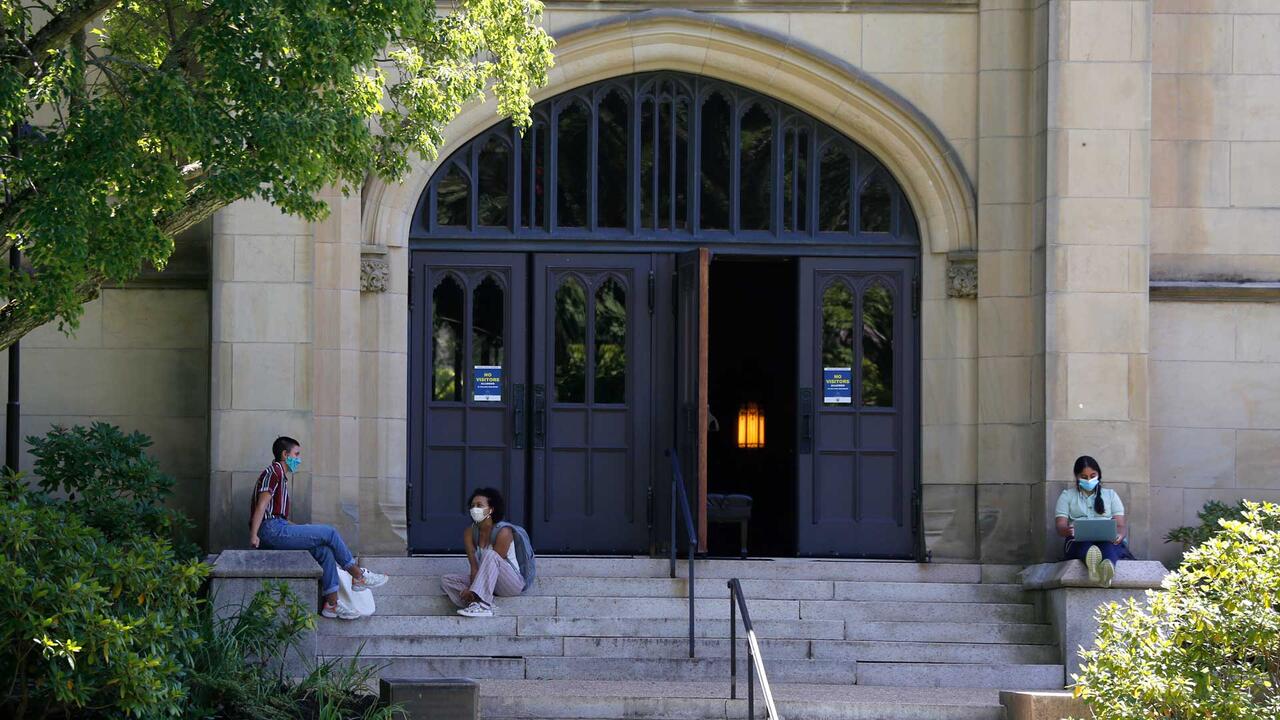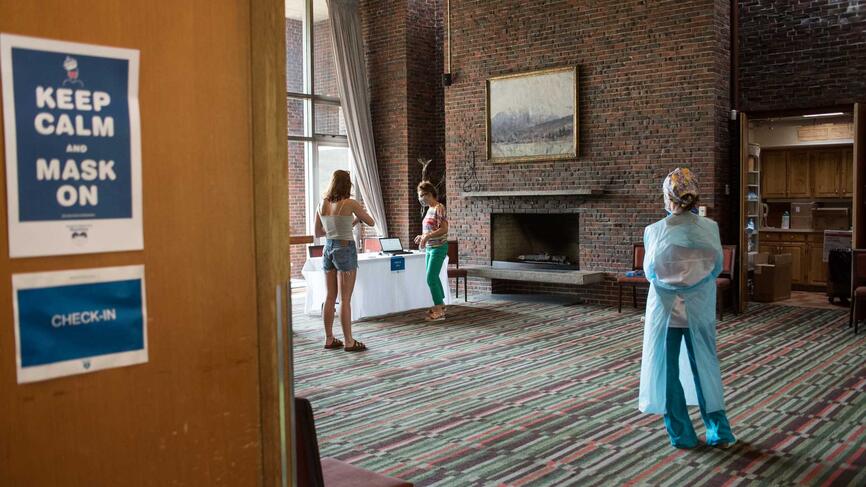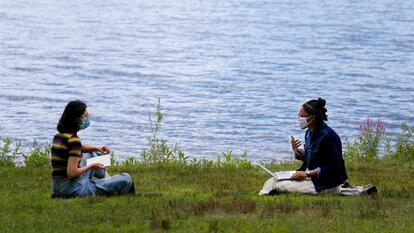
#KeepingWellesleyHealthy
When so many adults have been unwilling to modify their behavior for the sake of their communities, how do you encourage college students to do so? How do you help them understand the importance of staying on campus, keeping a distance from their friends, and wearing a mask all the time in order to live in residence halls and return to in-person classes?
First, you recognize it’s not easy for them.
That’s what Allison Weinberg, Wellesley’s director of student wellness, keeps in mind when she’s developing plans for student safety on campus. She thinks of ways to say, “I know it’s really hard and you want to be with each other…so let’s give you some ways that you can do things more safely.”
Keeping Wellesley Healthy is the message the College has been reinforcing over the past several months. Wellesley administrators have hosted webinars to answer questions about how the community would safely return to campus, and signage throughout the campus reminds students of best practices for staying safe and healthy. Weinberg said Keeping Wellesley Healthy is rooted in empathy and caring for your neighbor; her office’s role is to follow the philosophy of harm reduction and to help students make good choices. “We really stand for education, for skill building,” she said. “We know that change is hard and behavior change doesn’t happen overnight. But when there’s a pandemic, there is this urgency to make it happen overnight, and so the best thing we can do is to give people information and empower them to make the best choices for themselves.”
Weinberg is encouraged by the high number of negative COVID-19 test results that came through as students returned to campus in phases, with arrival times determined by whether they were coming from an area with a high incidence of the virus. “We’ve had only one positive test,” she said, “so that leads me to believe that some of the education campaigns we’ve done around quarantining before coming to campus, people took seriously.”

She is proud of this initial success for the Wellesley community. “We’re asking for [students] to give up a lot. We’re asking for them to make very big commitments,” she said. “So far, they have done that. And as we look nationally, we know that that’s not happening everywhere.”
Weinberg has enlisted the help of Wellesley’s peer health educators in sharing information about best practices for preventing the spread of COVID-19, including Ally Gago ’21, a member of Sexual Health Educators (SHEs), and Charlotte Durham ’21, a member of Balance Health Educators (BHEs).
Gago said a lot of her work focuses on harm reduction and simply having conversations with friends and blockmates about how to minimize risk to themselves and others, what their options are, and what is most practical and healthy for them. She also notes the importance of modeling the behavior they want to encourage, like wearing a mask, washing hands for 20 seconds or more, and maintaining physical distancing.
In early March, as news about COVID-19 spread and colleges started closing, Durham and her team created a video demonstrating proper hand-washing, which was their first foray into communicating about how to slow the spread of the virus. “I think it’s something that as an org, we can look back and say, this is where we started, and now that we have more information, we can better spread the message about keeping Wellesley healthy physically and mentally,” she said.
Weinberg and the peer health educators recognize the need to address the mental and emotional health components of the situation. “We know that the impacts of COVID-19 are far-reaching—it impacts our social connection, it impacts our mental health, it impacts our ability to practice spiritual life and religious connections,” Weinberg said. “Our efforts at Wellesley are to look at students as more than just students. They’re whole people going through enormous transformative times of their lives, and we’re here to support that.”
Durham said the BHEs are still developing their plans for the new semester. “Usually we focus on balanced living and nutrition, exercise, sleep, and stress resiliency,” she said. But because of the unusual circumstances, the team may adapt those pillars of wellness. “[W]e’re going to try to focus on the mental health aspect of wellness, especially as students are in their rooms studying, or they might be in an unstable environment,” she said. “And our access to resources, nutrition, exercise—it’s different right now. I think that’s one priority I have going into this semester.”
Gago said students on campus seem to be adapting. “I was kind of afraid for the first-years, since they don’t have roommates or anything, that they wouldn’t have people to hang out with,” she said, but she has seen groups of first-years enjoying each other’s company at a safe distance. “They seem to be able to still do stuff with each other, which is really nice, and everyone seems to be adjusting very well to this new normal of the masks and social distancing and still having a semi-normal college experience.”
While students seem to be practicing the Wellesley 3Ws (watch your distance; wear your mask; wash your hands), Weinberg said her office’s support goes further than that: “We also want them to be thinking about how they are staying connected while being physically apart. How are they making time for themselves when times are hard? I want them to know that we’re a resource for beyond just the obvious public health measures. We approach wellness from a holistic perspective.”

